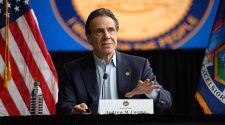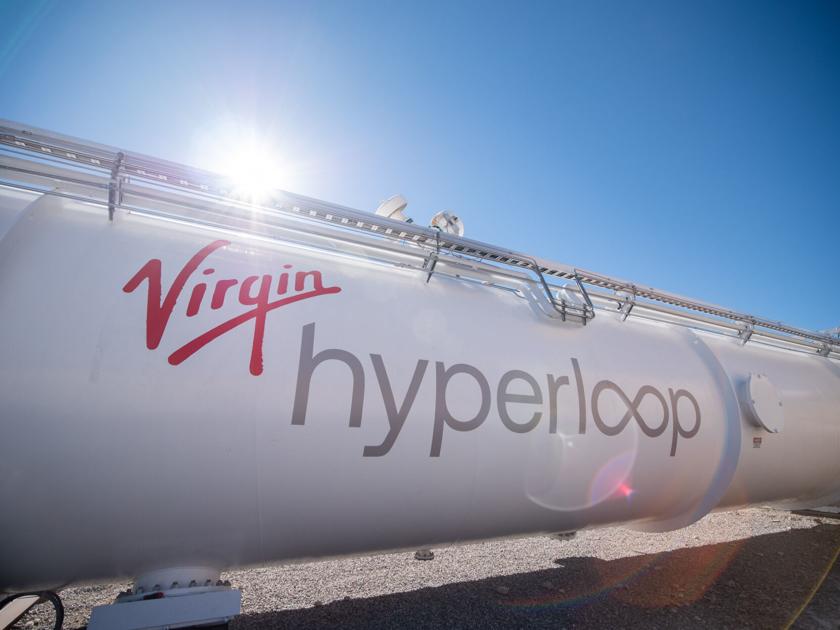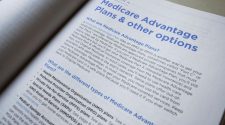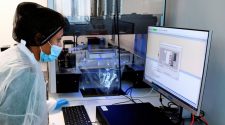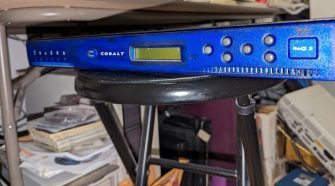From developments in the Virgin Hyperloop Certification Center and upstart small businesses to advancements in remote working and federal recruitment, West Virginia technology leaders are optimistic about the sector’s chances in 2021.
Outside COVID-19, one of the biggest developments of 2020 that’s set to impact the state this year is the installation of the Virgin Hyperloop Certification Center in Grant and Tucker counties.
When completed, the facility will be used as a testing site for Hyperloop technology, and many tech leaders, including TechConnect Executive Director Anne Barth, think that the site will have a large impact on the state economically.
“It’s a tremendous development in my opinion, and a great morale boost on top of some other good tech news that we’ve seen in the last year in West Virginia,” Barth said. “I’m really excited to see what it all means and how it’s going to look for West Virginia.”
Barth’s sentiment on the Hyperloop is shared by Jim Estep, president and CEO of the High Technology Foundation in Fairmont.
“I believe that having the Hyperloop certification facility here in West Virginia creates an important opportunity to attract not only federal operations — for example the U.S. Department of Transportation — but also a number of companies that would be supporting the certification program,” Estep said.
“In addition to leveraging the Hyperloop operation to recruit federal facilities, we should also be working very hard to position ourselves to be the manufacturing site for not only the Hyperloop vehicles, but the other components required to build a fully operational Hyperloop somewhere in the country.”
But optimism for 2021 goes beyond the Hyperloop. In fact, Estep said it could be a landmark year for the technology sector in West Virginia, and he’s incredibly hopeful for what it might bring.
“I probably have more optimism going into 2021 than I have for the last several years, not just because of what is happening at the High Tech Foundation, but what I’ve seen with initiatives that are being championed by John Chambers and Brad Smith,” Estep said.
“There is a very tangible momentum that has been created that we haven’t seen before that I think has incredible potential. Some might say that, with the seditions in the coal industry and the incredible uncertainty in the natural gas industry, we need to have a sense of urgency towards maximizing the impact of that momentum.”
One instance of momentum, according to Estep, is the ability to attract remote workers to the state. He said that with West Virginia having a lower cost of living than many surrounding areas, coupled with the push for more remote working due to the pandemic, this could be a lucrative opportunity for the state.
That’s an opinion shared by Barth.
“I think West Virginia is in a unique position to advertise that we are a great place to come if you can work remotely,” Barth said. “If you want to be able to afford a house and you want to have interesting things to do in your free time, you should check West Virginia out. …
“I hope to see us make the most of that this year as people make their own plans and companies figure out just which parts of the workforce might have to come back to the office and which parts might not. Those folks, like all of us, are probably re-evaluating their options, and I would love to see West Virginia attract remote workers from other states.”
Estep said the rise of remote working could also have an impact on recruitment efforts by both the High Tech Foundation (at the I-79 Technology Park) and organizations in other parts of the state.
“I don’t think the opportunities associated with remote working are going to necessarily hurt our federal anchor recruitment efforts,” Estep said. “If anything, it can enable them, because the idea of being able to work remotely, I believe, is a supporting argument for the relocation of some of these operations out of the greater D.C. area. Basically, the pandemic has, in my opinion, created a paradigm shift in the thinking process that everyone has to get up in the morning and go into the office. …
“Therefore, by taking the emphasis off of that paradigm … that just strengthens our ability to get them to consider coming to the I-79 Technology Park or to West Virginia, especially considering the very real national security problems that exist in the D.C. area and the cost of operations in that area.”
Barth said that 2021 could also be a good year for entrepreneurs looking to finally start up their businesses. Barth referenced both the Small Business Innovation Research (SBIR) and Small Business Technology Transfer (STTR) programs, which give funding to qualifying start-up companies.
She said that these two programs could have a major impact this year, and thanked those responsible for getting them implemented.
“I want to give credit to the legislature for creating such a strong incentive that encourages our small businesses and researchers to explore this source of funding, which is called America’s seed fund,” Barth said. “I look for more great things to come out of that program, and I think it’s a surefire way to help diversify the state’s economy, which is something we’re all seeking to do.”
While she noted that the pandemic has had a horrible impact on many areas of daily life, she said that one silver lining is that, with all of the extra free time, entrepreneurs and researchers have been able to lock in and develop their business ideas to a much greater degree.
“One thing we learned from last year is that, when activities are curtailed and limited, it’s a good time to get your head down, get some research done and maybe get your business plan put together,” Barth said.
“You can do all the groundwork that it takes to consider launching a new business. As we head in to 2021 with some of those same restrictions in place, I think it will serve as a motivator so folks who maybe are on the edge of deciding to whether open a new business or pursue that research a little deeper and to take stock and get ready for a more full recovery of the economy soon.”
While the pandemic still looms over everything in the state, country and world, Barth and Estep remain cautiously optimistic about the tech sector’s growth in 2021, and Estep said that the various changes caused by the virus could mean big things for The Mountain State.
“I don’t think the pandemic is magically going to go away, but I think we can see the light at the end of the tunnel thanks to the vaccine,” Estep said. “I think we’ll see movement towards normalcy, but I also think we’ll be forever changed by things. That could be very optimistic for the state of West Virginia.”
Fairmont News Editor John Mark Shaver can be reached at 304-844-8485 or [email protected].




